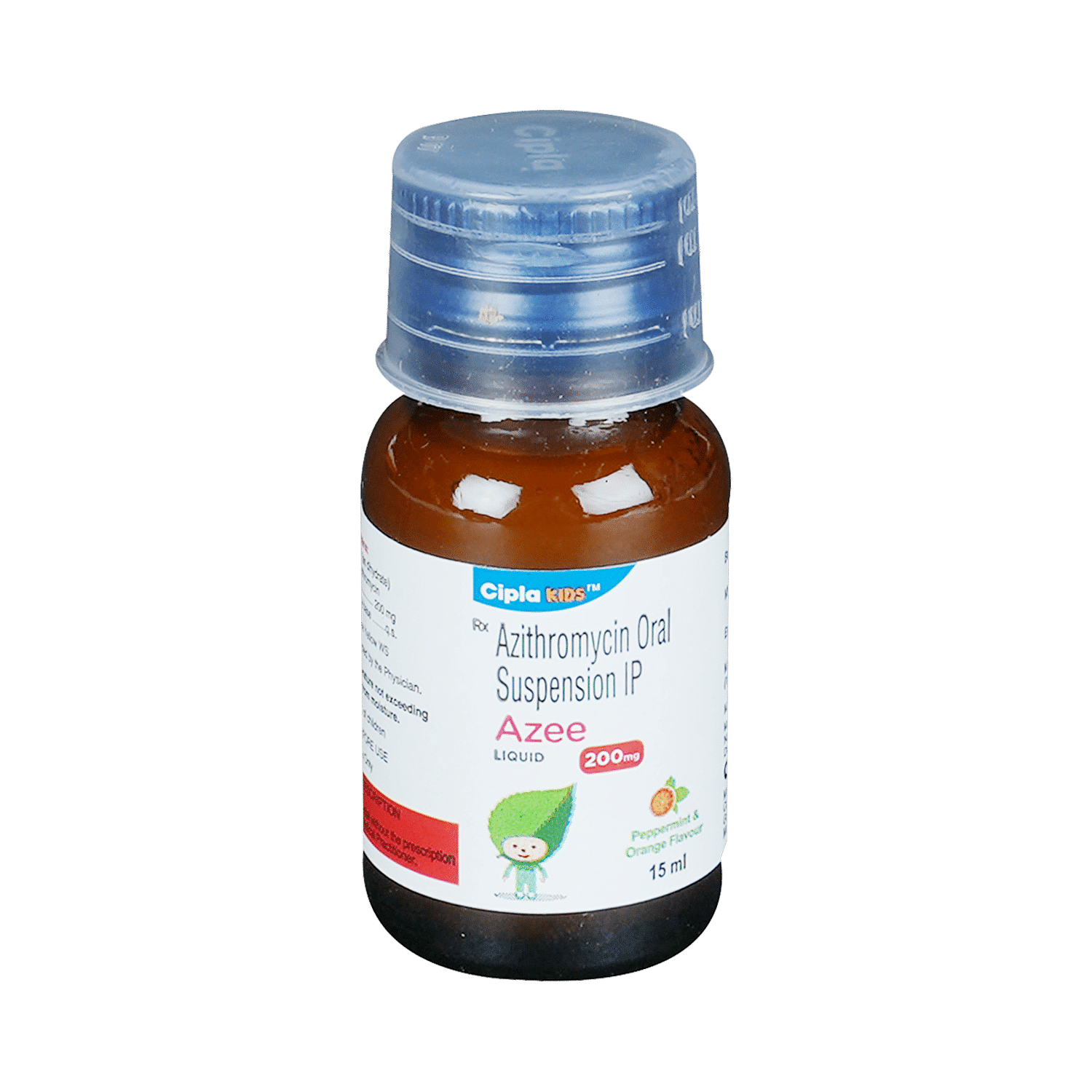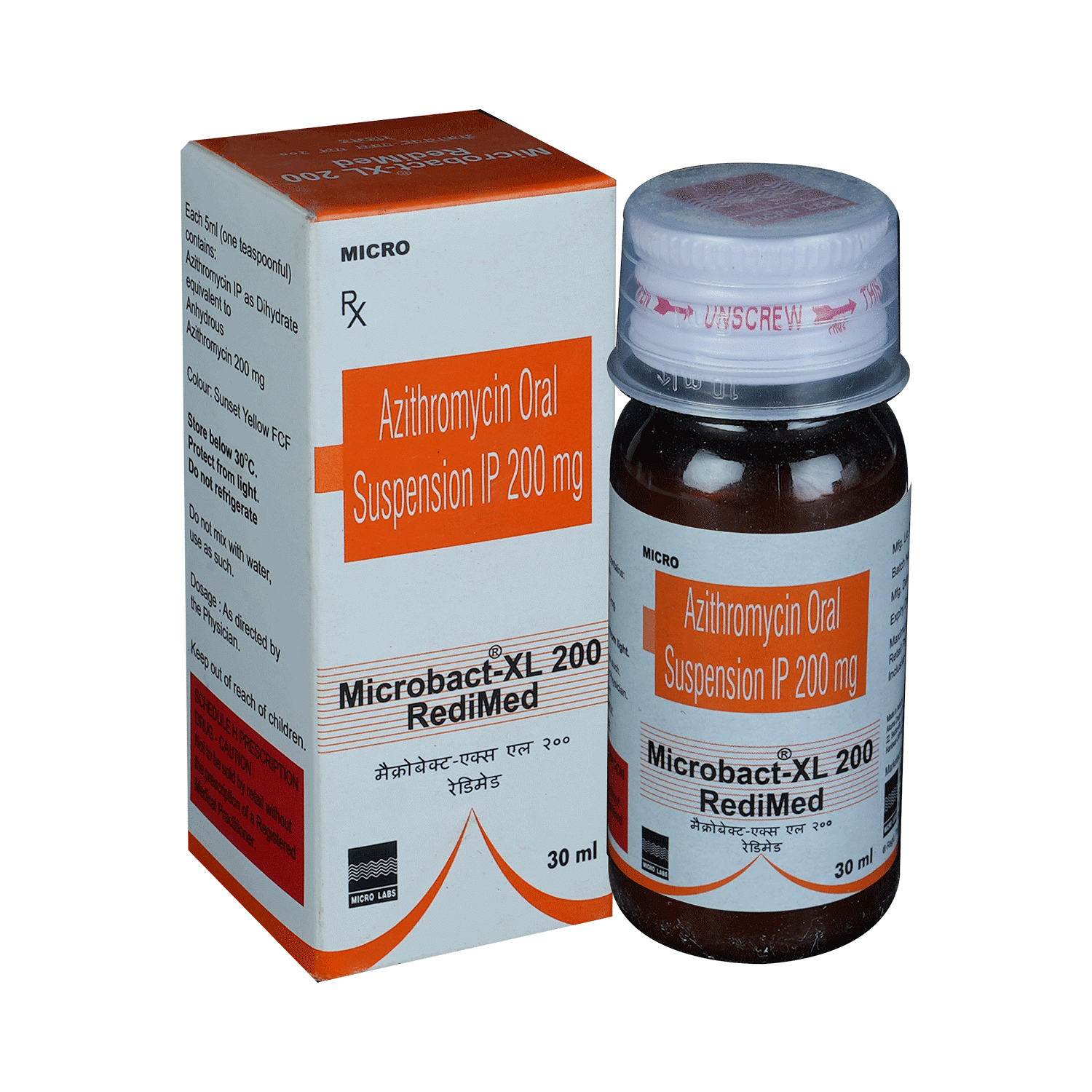
Zithrovil 200 Oral Suspension
Manufacturer
Fibovil Pharmaceuticals Pvt Ltd
Salt Composition
Azithromycin (200mg)
Key Information
Short Description
Zithrovil 200 Oral Suspension is an antibiotic medication used to treat a wide range of bacterial infections in children.
Dosage Form
Oral Suspension
Introduction
Zithrovil 200 Oral Suspension is an antibiotic medication commonly given to children for the treatment of bacterial infections targeting the ear, eyes, nose, throat, lungs, skin, and gastrointestinal tract. It is essential to complete the entire course of this medicine to avoid the bacteria multiplying again, becoming resistant, or causing another infection.
Directions for Use
Give Zithrovil 200 Oral Suspension with food to avoid an upset stomach. Encourage your child to drink plenty of water in case diarrhea develops as a side effect.
How it works
Zithrovil 200 Oral Suspension is an antibiotic that works by interfering with the synthesis of essential proteins required by bacteria to perform important functions. It stops the infection-causing bacteria from growing further and prevents the infection from spreading.
Quick Tips
Complete the entire course of this medicine Give Zithrovil 200 Oral Suspension with food Encourage your child to drink plenty of water in case diarrhea develops Only give Zithrovil 200 Oral Suspension to your child for their current infection Stop the medicine and contact the doctor immediately if your child develops an itchy rash, facial swelling, and breathing difficulties soon after the intake
Related Medicines

Azee 200mg Liquid Peppermint & Orange

Azikia 200 Oral Suspension

Microbact XL Redimed 200mg Oral Suspension

Azelex 200mg Oral Suspension

Zivith 200mg Oral Suspension

Azimint 200mg Oral Suspension

Triz 200mg Oral Suspension

Azyxyn 200mg Oral Suspension

Aziport-XL Oral Suspension

Azila 200mg Oral Suspension
Frequently asked questions
What if I give too much of Zithrovil 200 Oral Suspension by mistake?
Zithrovil 200 Oral Suspension is unlikely to cause harm if an extra dose is given by mistake. However, if you think you have given too much of Zithrovil 200 Oral Suspension to your child, it's important to contact a doctor immediately. Overdose may lead to unwanted side effects and could even worsen your child's condition.
Are there any possible serious side effects of Zithrovil 200 Oral Suspension?
Serious side effects of this medication can include persistent vomiting, kidney damage, allergy, diarrhea, and severe gastrointestinal infections. If you experience any concerning symptoms, it's important to consult your child's doctor for assistance.
Can other medicines be given at the same time as Zithrovil 200 Oral Suspension?
Zithrovil 200 Oral Suspension may interact with some medications or substances. It's crucial to inform your child's doctor about all other medications they are taking before starting Zithrovil 200 Oral Suspension. Consulting your doctor is also important before giving any medication to your child.
Can I get my child vaccinated while on treatment with Zithrovil 200 Oral Suspension?
Generally, antibiotics do not interfere with vaccinations or cause a bad reaction in a child who's been vaccinated recently. However, children taking antibiotics should not receive vaccinations until they are fully recovered from the illness. Once your child is feeling better, the vaccine can be administered.
Which all lab tests should my child undergo while taking Zithrovil 200 Oral Suspension on a long term basis?
The doctor may prescribe kidney function and liver function tests periodically to assess your child's condition.
Can Zithrovil 200 Oral Suspension impact my child’s digestion?
Children often experience digestive upset when taking medications, including Zithrovil 200 Oral Suspension. This is because antibiotics can disrupt the balance of good and bad bacteria in their gastrointestinal tract. It's important to monitor your child for diarrhea if they are on Zithrovil 200 Oral Suspension, and contact a doctor if needed.
Why is Zithrovil 200 Oral Suspension given for 3 days?
The duration of treatment depends on the type of infection being treated and your child's age. Zithrovil 200 Oral Suspension is not necessarily given for 3 days. In most bacterial infections, a single dose of 500 mg is given for 3 days. Alternatively, it can be taken as 500mg once on day 1 and then 250mg once from day 2 to day 5. For some cases of infection such as genital ulcer disease, it's given as a single 1 gram dose. It is essential to follow the prescribed regimen advised by your doctor.
What should I avoid while taking Zithrovil 200 Oral Suspension?
It is recommended that patients using Zithrovil 200 Oral Suspension avoid antacids as this can affect the medication's effectiveness. It is also recommended to avoid prolonged sun exposure or tanning beds, as this medication increases the risk of fungal infections. Inform your doctor if you experience any unusual symptoms like sores, vaginal itching, discharge or white patches in your mouth or tongue.
Can you get a yeast infection from taking Zithrovil 200 Oral Suspension?
Certain people may develop a fungal or yeast infection known as thrush after using Zithrovil 200 Oral Suspension. Antibiotics like Zithrovil 200 Oral Suspension can kill the normal or ‘good’ bacteria in the intestine that normally prevent thrush. If you notice symptoms like a sore, vaginal itching, discharge, white patches in your mouth or tongue, notify your doctor immediately.


